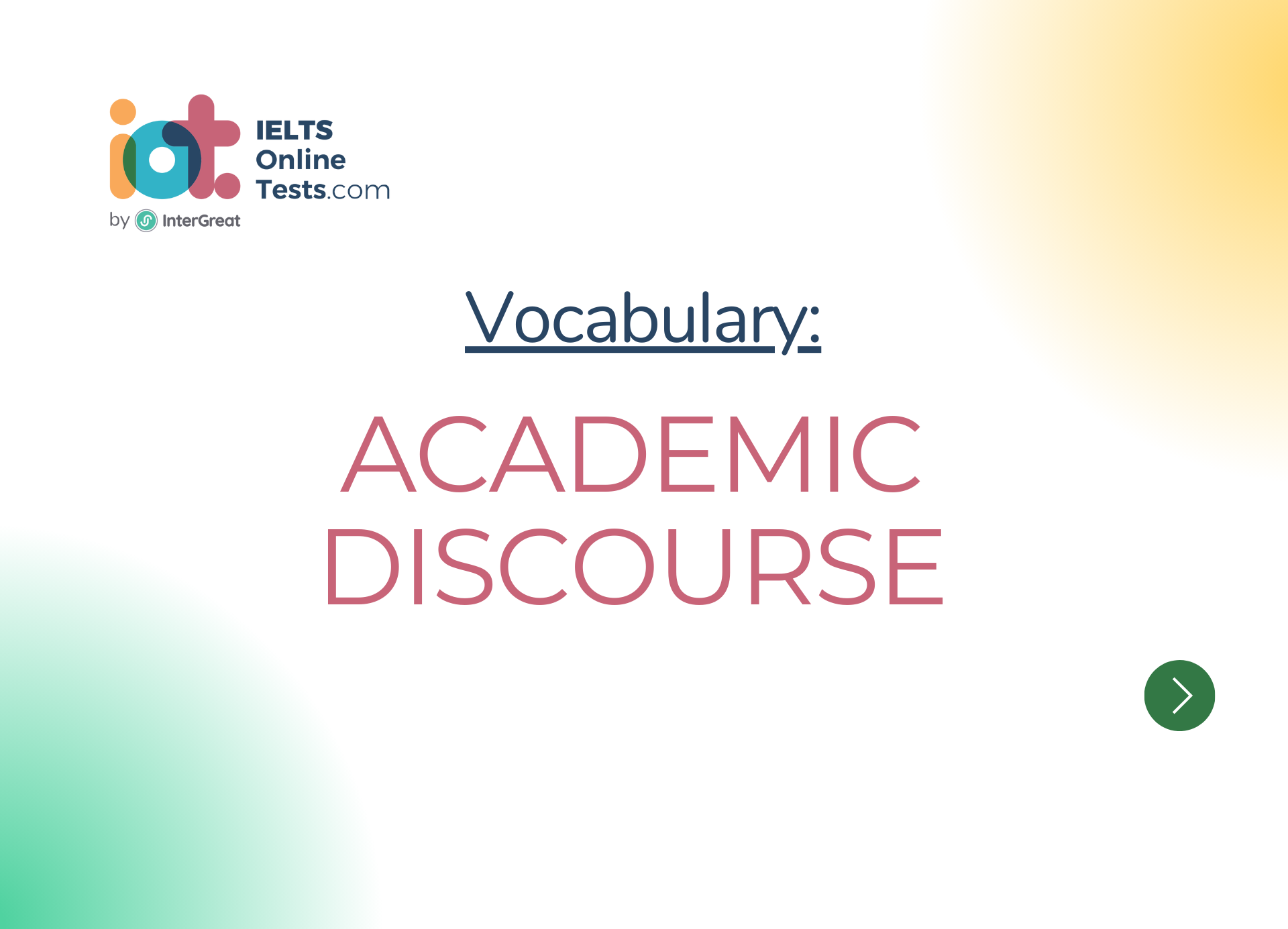
Academic discourse
Academic discourse refers to the language and communication styles used in academic settings. It is characterized by formal and precise language, critical thinking, and well-structured arguments. Understanding and using academic discourse effectively can significantly improve your writing and speaking skills in academic contexts. Here's a comprehensive list of vocabulary related to academic discourse suitable for the IELTS band score range of 6.5-8.0:
Academic Writing Styles:
Expository Writing: Writing that explains or describes a topic in a clear and objective manner.
Argumentative Writing: Writing that presents a well-reasoned argument and supports it with evidence.
Descriptive Writing: Writing that vividly describes something, often using sensory details.
Analytical Writing: Writing that critically examines and interprets information to draw insights.
Essay Components:
Introduction: The opening section of an essay that presents the topic and thesis statement.
Thesis Statement: A concise statement that summarizes the main argument or point of the essay.
Body Paragraphs: The main sections of the essay that support the thesis with evidence and analysis.
Topic Sentence: The first sentence of a paragraph that introduces the main idea of the paragraph.
Supporting Evidence: Facts, examples, statistics, or quotations that bolster the argument.
Analysis: Critical examination and interpretation of evidence to support the thesis.
Conclusion: The closing section of an essay that summarizes the main points and restates the thesis.
Academic Vocabulary and Register:
Formal Language: Language that adheres to academic conventions and avoids colloquialisms.
Technical Terms: Specialized words and phrases specific to a particular field or discipline.
Discourse Markers: Words or phrases that connect ideas and indicate relationships between sentences and paragraphs (e.g., however, therefore, moreover).
Definitions: Precise explanations of key terms used in the academic context.
Citations: References to the sources of information used in the text.
Critical Thinking and Evaluation:
Analysis: Breaking down complex ideas into their constituent parts and examining their relationships.
Evaluation: Assessing the strengths and weaknesses of arguments or evidence.
Synthesis: Combining different ideas or sources to create a cohesive argument.
Academic Conventions:
Referencing Styles: Specific formats for citing sources in academic writing (e.g., APA, MLA, Harvard).
Plagiarism: The act of using someone else's work without proper attribution.
Academic Disciplines and Fields:
Humanities: Academic disciplines studying human culture, including literature, philosophy, and history.
Social Sciences: Academic disciplines focusing on society and human behavior, such as sociology and psychology.
Natural Sciences: Academic disciplines studying the natural world, including biology, chemistry, and physics.
Engineering: Academic discipline dealing with the design and construction of structures, machines, and systems.
Economics: Academic discipline concerned with the production, distribution, and consumption of goods and services.
Academic Presentation:
Oral Presentation: Formal spoken presentations in academic settings, often accompanied by visual aids.
Audience Engagement: Techniques used to involve the audience and keep their attention during a presentation.
Q&A Session: A portion of the presentation where the audience can ask questions and seek clarifications.
Academic Journals:
Peer-reviewed Journals: Academic journals where articles are evaluated by experts before publication.
Impact Factor: A measure of the importance of a journal within its field.
Academic Integrity:
Ethics: Moral principles and values that guide research and academic conduct.
Plagiarism: Intentionally or unintentionally using someone else's work without proper citation.
Copyright: Legal protection for original works of authorship.
Academic Skills:
Research Skills: The ability to gather, evaluate, and synthesize information from various sources.
Critical Reading: Analyzing and interpreting academic texts in a thoughtful and discerning manner.
Time Management: Effectively allocating time for studying, research, and writing.
Remember to practice using these vocabulary words in your academic writing and speaking to improve your ability to express ideas and arguments clearly and convincingly. Mastering academic discourse is essential for success in higher education and can help you achieve a higher IELTS band score. Keep up the good work!




